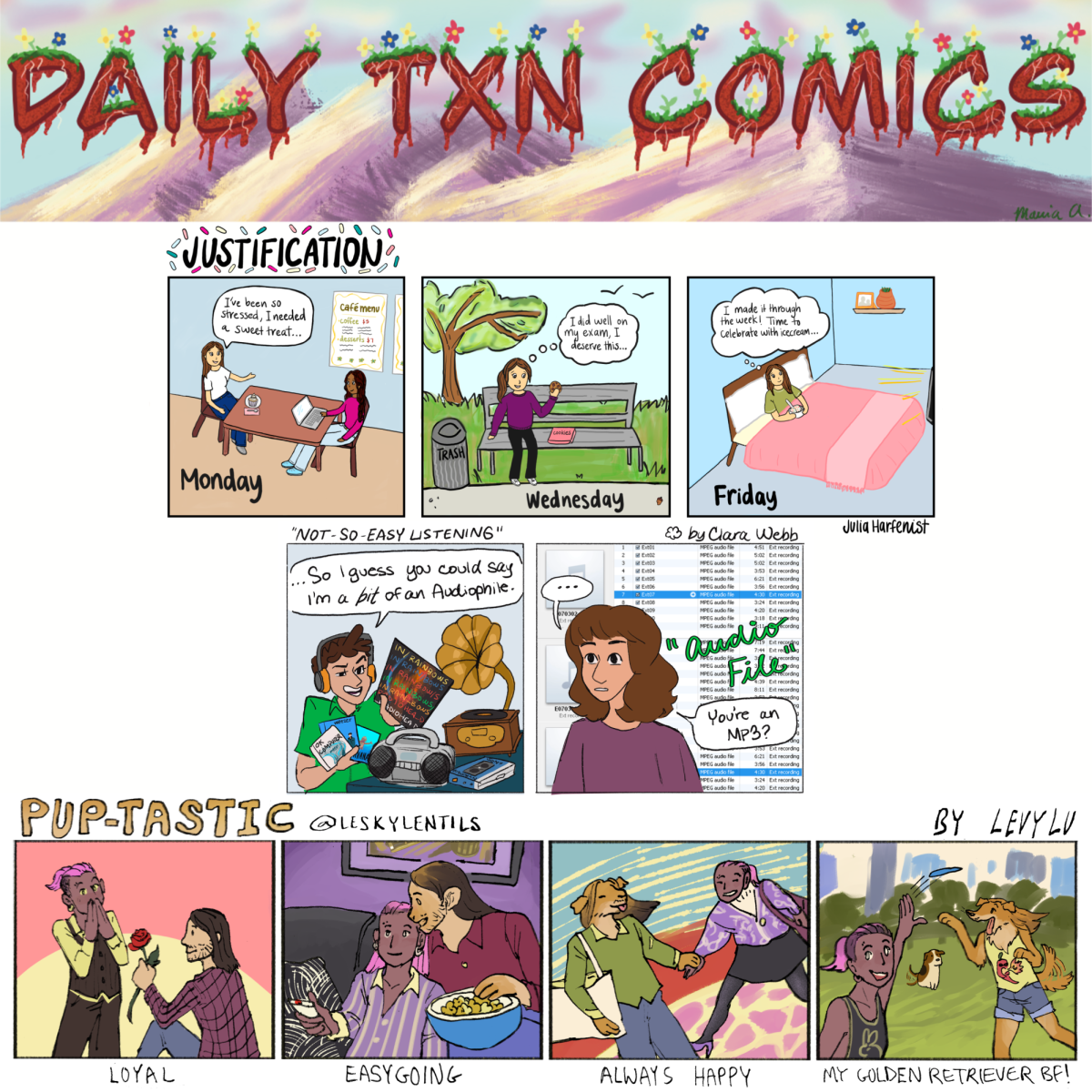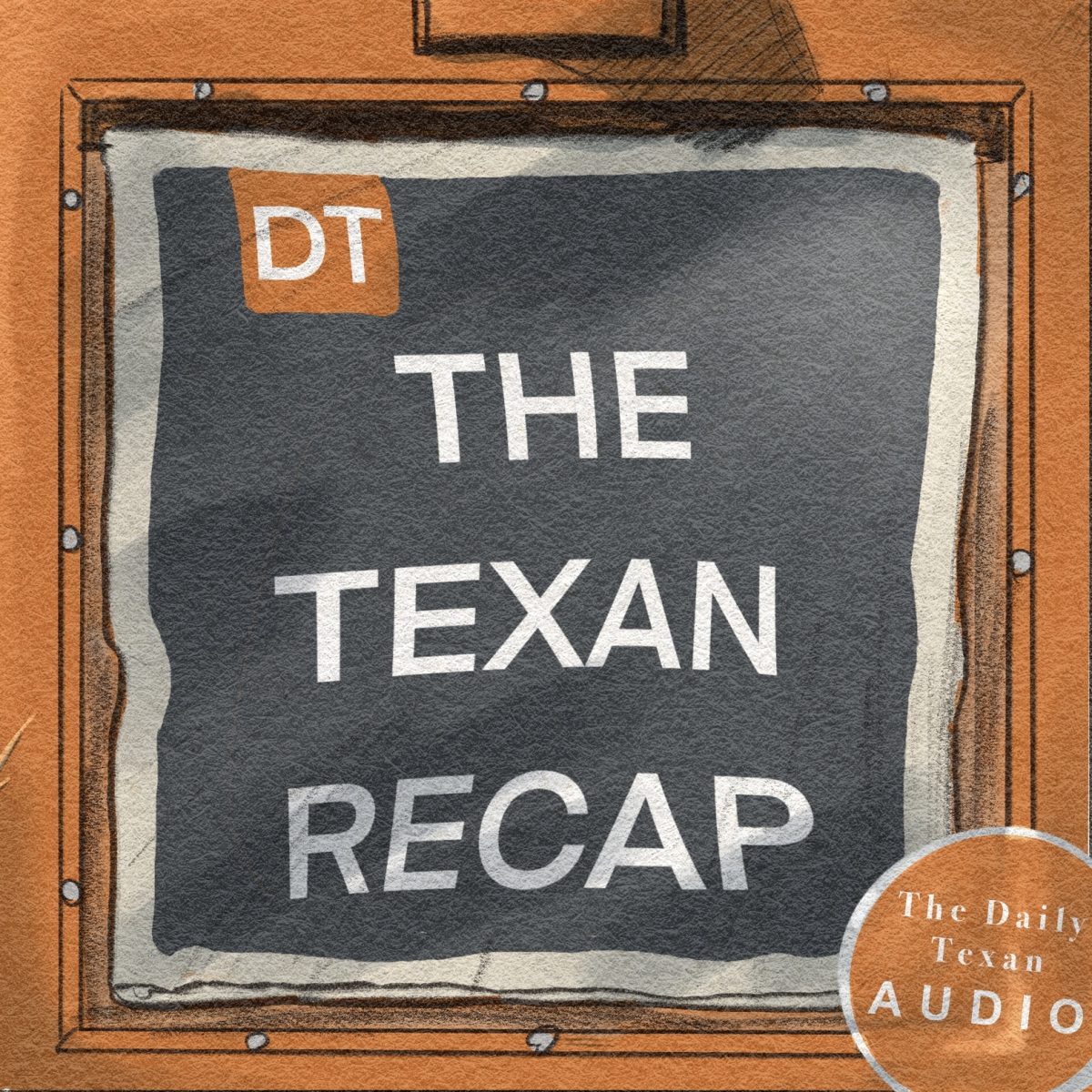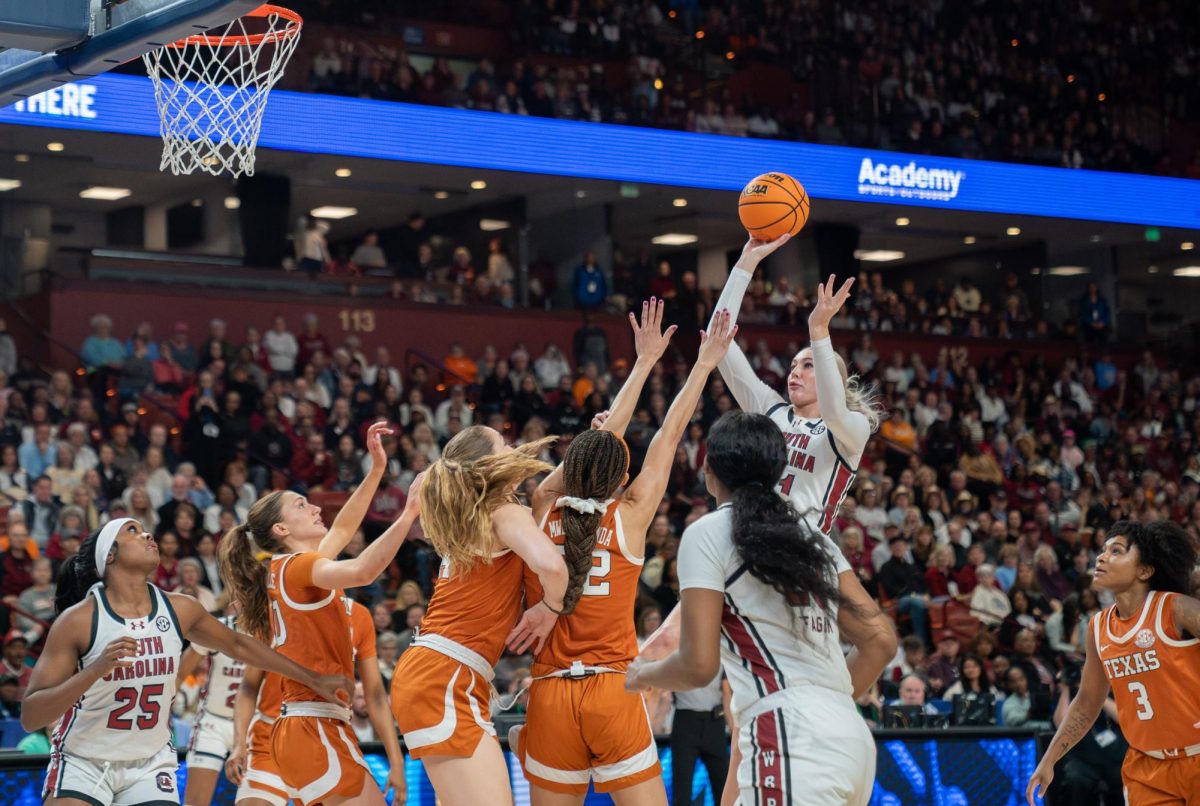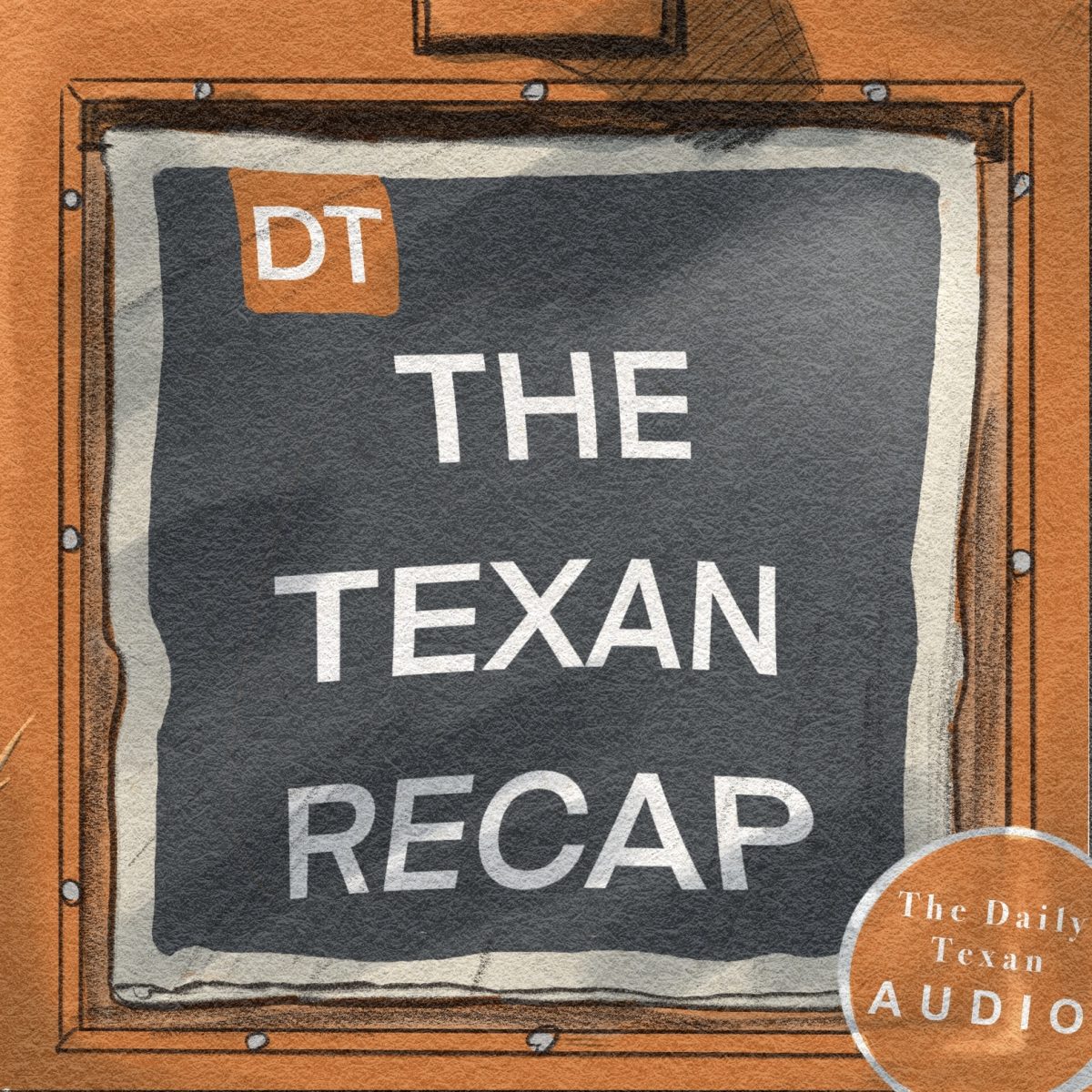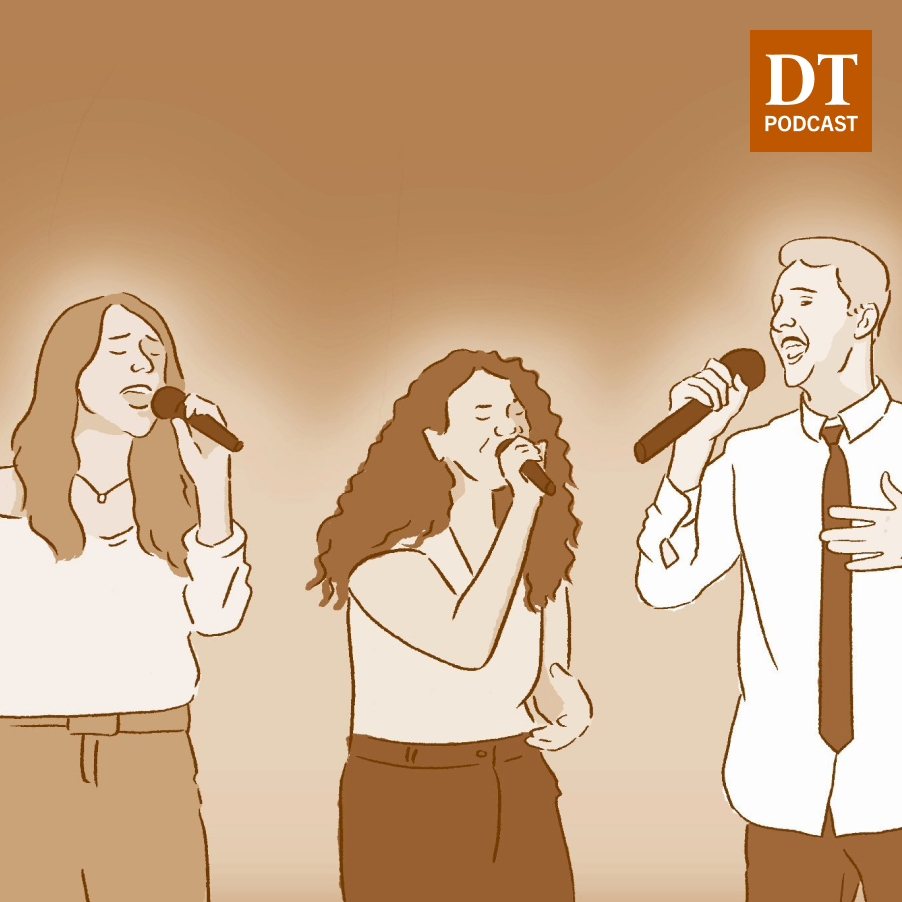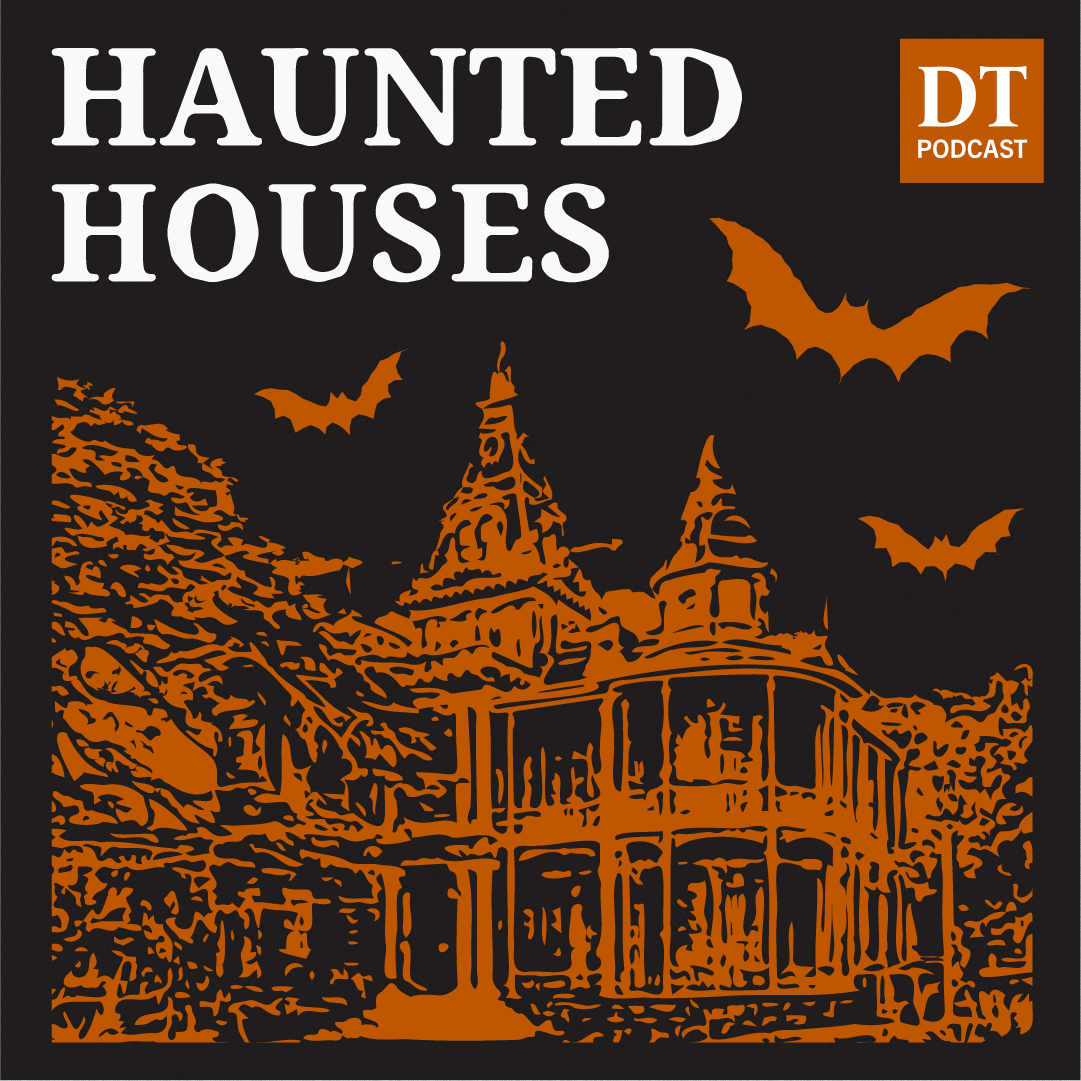Editor’s note: This podcast was originally published on Spotify on Oct. 16, 2023.
A temporary injunction in Texas is keeping House Bill 900, a law that aims to remove sexually explicit books in school libraries, from being enforced. In the meantime, associate audio editor Melody Jones explores the topic of banned books, why they get banned and who’s affected by book bannings.
Hosted and produced by Melody Jones. Cover art by Angela Leon. Music by Mile Marker, Tidal Foam and Blue Dot Sessions.
*Music (Mile Marker)*
MELODY: “A bed. Single, mattress medium-hard, covered with a flocked white spread. Nothing takes place in the bed but sleep; or no sleep. I try not to think too much. Like other things now, thought must be rationed. There’s a lot that doesn’t bear thinking about. Thinking can hurt your chances, and I intend to last,”
MELODY: Margret Atwood’s dystopian novel The Handmaid’s Tale follows Offred, a woman who lost everything to the oppressive post-U.S government, Gilead. Women can’t dress, read or speak as they like, and are forced to give birth or become “unwomen.” The Handmaid’s Tale is one of many books that have been banned in school libraries for sexually explicit content.
*Music Fades*
*Music (Tidal Foam)*
MELODY: Welcome to episode two of Austin Bound. A podcast about reading from an Austin perspective.I’m Melody Jones and I’ll be your host for today’s episode. In Texas, House Bill 900 requires book vendors to rate books for sexually explicit content, deeming them fit or unfit for school libraries. A temporary injunction is in place keeping the bill from being enforced.
MELODY: In this limbo period, I spoke with Dr. Abigail Adams about banned books. Adams is an admin assistant for the Lyndon B. Johnson School of Public Affairs where she mentors students researching public policy. She previously taught classes on Chaucer and the 15th century and banned books under UT’s English Department. Here is our conversation.
*Music fades*
MELODY: So we are talking about banned books, and also specifically banned books in relation to Texas,
MELODY: So I wanted to ask, What are common causes of book bans? And why might Texas be prone to them?
ADAMS: I would say first, that book banning or attempts at suppressing certain kinds of literature, you know, are not by any means unique to our period in history or to Texas,
ADAMS: But yes, certainly Texas has a book-banning problem. And you brought up the bill that goes into effect in September. I think that’s a classic example of how book banning often works is that there’s a stated concern sexually explicit content in schools. When it seems that’s not really what the book vendors are trying to target. We know that books that are telling the stories of queer people are more likely to be labeled as sexually explicit and challenged. So that’s a bit of a red herring kind of misdirecting away from what’s really trying to be banned, which are certain kinds of stories and certain kinds of people.
MELODY: Yeah. And on that line about House Bill 900. House Bill 900 is requiring that book vendors review their books for sexually explicit content. So what challenges might publishers or vendors face when determining a rating for a book? And who will this affect?
ADAMS: I’m an educator, I think very hard about what I want my students to read what I want to put on my syllabus,
ADAMS: And I think high school teachers are also making those calls, they’re thinking, you know, is this appropriate for the age and for the type of student that I teach? And really, the people best suited I think, to make those calls are the school librarians and the teachers, not legislators. Obviously, deciding whether or not something is sexually explicit is famously a very subjective call. And it’s something that I think really needs to rest with teachers to decide what’s pedagogically right for their classroom.
MELODY: You got it right into my next question. According to the Texas Tribune, there are state legislators, librarians and some parents worried about the wording of sexually explicit being too vague. So who could this or if you mind elaborating? How could this be harmful to the people that you’ve already mentioned?
ADAMS: Sure, so when we look at a book like Alison Bechdel’s graphic memoir, Fun Home, which we read in my banned books class, yes, there is sexual content in that book. I would not say that that’s the main subject of the book. You know, it’s not a book about sex. It is a book about sexuality, and about gender identity, which are things that I think are very important to be discussing in a classroom.
MELODY: Yeah, it reminds me of another newer book, “Gender Queer”, which was another graphic novel that was heavily targeted for book bans. And so I wanted to say that some of the themes that we’ve been talking about gender identity, race, violence are common themes in book bands. So what are the benefits of encountering complex topics in literature?
ADAMS: I think literature is a wonderful way to see from a different perspective, right? One of the novels that we read in my banned books class is Toni Morrison’s, The Bluest Eye, which is about a few young black girls growing up in America, and particularly how they’re affected by the images that they are seeing in the media and in books at school,
ADAMS: and seeing that they don’t look like that idealized image of the All-American celebrated little girl and how that affects them.
ADAMS: this is a classic defense of literature that English teachers love to offer literature can build empathy and us. But I think another way of looking at this question is to say something that my students have often said to me, which is, it’s not as though folks aren’t encountering these issues outside of the classroom as well.
ADAMS: And it’s important for those students to see their experiences their trauma, represented in literature, as a way of thinking about and understanding things that they’ve already experienced.
ADAMS: These are not issues that we should pretend don’t exist in the classroom when so many students are experiencing them outside the classroom.
MELODY: Yeah, these issues are everywhere, and especially also online. There’s a growing online media landscape. So I just wanted to say with that growth, how does that change? Like? Or how does it influence book bands?
ADAMS:On the one hand, the internet is a great place for all of us to learn about the world around us. It is a relatively open place for the exchange of ideas. But I think there’s also the effect on the internet of how often we see the content that goes viral, right? We’re not necessarily choosing what we look at, we’re choosing what the algorithm shows us.
ADAMS: There are certain books that have become very famous as banned books that constantly show up on those banned book lists. And those books are great, those books are the classics, I love many of those books. But I think folks should be going out and reading books that mean something to them personally, and to the communities around them.
MELODY: Yeah, that is a great way to put it. And also, I feel like you kind of mentioned it, but virality does not always mean truth. So how can books help combat misinformation about these topics?
ADAMS: Hmm, yeah, misinformation on the internet is a really difficult problem and not one that I have a solution for. Although I like to think that the kinds of skills that we work on in English classes can be really important in combating misinformation.
ADAMS: And reading banned books can be a really exciting part of that. And I think the more we read both fiction that’s encouraging us to think creatively and think from the perspectives of others and think critically, and also bring those critical reading skills to how we look at the news, that those two pieces are both really important.
MELODY: I see what you’re talking about, about, you know, engaging in conversations about these books and, and bringing that outside of the classroom. And then also, to kind of go back to your previous answer, there are still a bunch of stores and libraries pushing for these books to be read. So I just want to ask, why is that relevant?
ADAMS: I have been heartened to see booksellers, being one of the groups of people who are coming out against the book-banning bill in Texas. And I think they have an important role to play in making sure that these books are available in our communities. Because, yes, unfortunately, in Texas, schools are going to be affected by this book-banning bill. And that is, I think, a great tragedy for Texas students. And I think it becomes all the more important than that we, we support having public libraries that make these books available, having bookstores that make these books available.
MELODY: I think that you’re you’re pretty right about having librarians and having booksellers to reach out to is always a great resource. I personally wouldn’t have picked up a book when I was younger if it weren’t for librarians. So now that we’re on the topic of having someone to reach out to for a book, you have a recommendation for me. So can you tell me a little bit about the book that you’re going to recommend?
ADAMS: Yes, I recommended that you read Margaret Atwood’s The Handmaid’s Tale, and my choice there is twofold. First, it’s a great book.
ADAMS: it’s a totally compelling narrative, not only about reproductive rights in the place of women in society, and how religion especially can be used as a political tool. But it’s really a book about the liberating power of language, I think, in Offred’s society, which is called Gilead, women are not allowed to read to the point where the labels on food in the grocery store have been replaced with pictures,
ADAMS: And yet, our narrator loves language. She’s constantly engaging in ponds and wordplay and remembering songs and literature from the past. And that’s part of what really keeps her spirit alive. And so I think it’s really a story about how literature can sustain people’s imagination and spirits. So it’s a great book. That’s my first reason for recommending it. And second, it’s a book that I think has become a political touchstone in our culture, right,
ADAMS: when Roe v. Wade was overturned with the Dobs decision we saw, we saw handmade protesters, and so that image of the woman in the red robe with the with the white cab has become a symbol of what can happen if we don’t protect women’s freedoms. And I’d love to see a piece of literature come out into the political sphere like that.
MELODY: Yeah, it sounds. It sounds just so interesting that you like you were listed so many topics that already like pique my interest and I haven’t even picked it up. So I just thank you for bringing that recommendation to me. And I guess as a closing topic, what do we gain by reading Banned Books and, more specifically The Handmaid’s Tale
*Music (Kestral)*
ADAMS: When you pick up a book, you are entering into a conversation, right? You are hearing what another person has to say to you through the medium of literature, and then you have the gift of having that language. And that story becomes something that you have experienced, and that now you can take out into the world. Reading a book is, is not just about passively receiving entertainment, it’s I think, really about entering into a conversation that an author has begun. And when we engage with books that are representing the stories of queer people, or of people of color, or that are presenting ideas that challenge the status quo in our society. That can be the beginning of empowering us to be part of lifting up those people and those voices and in challenging the status quo where it is oppressive and wrong.
MELODY: Thank you so much for your wisdom for your words and for your recommendation.
MELODY: It’s been a great conversation.
MELODY: Adams invites students to read for themselves outside of class, and find their reading niche. And now for my thoughts on The Handmaid’s Tale. Dr. Adams gave a wonderful synopsis of this book and the big themes it covers, but it shines in its little moments. In The Handmaid’s Tale, readers are restricted to Offred’s perspective. She wears a “white-winged” bonnet meant to limit her view of the world and the world’s view of her, only to be seen as a body, not a person. Even a glance in the wrong direction could cost Offred her life, but she risks it anyway. In these sparse moments, we come to understand Offred, and also, Gilead as a whole. Offred is painfully human. She yearns for autonomy, love, comfort, conversation, for any reminder that she is still a thinking, feeling person. For her, rebellion isn’t an action, it’s a mindset. She clings to memories and paints her life in poetic metaphors so her spirit doesn’t break. Gilead is a society built on complacency. If Offred accepts her life as it is, she loses, but if Offred makes a wrong move trying to change it, she dies. It’s a terrible contradiction, that frustrated me throughout the story and successfully conveyed how powerless Offred was in her own tale.
MELODY: “I’m sorry there is so much pain in this story,” Offred says, addressing the reader directly. “I’m sorry it’s in fragments, like a body caught in crossfire or pulled apart by force. But there is nothing I can do to change it.”
It’s been a while since I’ve gotten angry on a character’s behalf. This book reminded me of literature’s great ability to evoke emotion. Banned books often contain subject matter around race, sexuality and gender identity and they often critique society in some way. The future of challenged titles existing in Texas school libraries is unclear, and certain groups may lose representation if the bill takes effect. As Dr. Adams said, reading is a tool for conversation, which can build an open dialogue and more understanding community.
Austin Bound is a production of The Daily Texan Audio Department. A list of the Banned Books we mentioned will be available in the transcript of this podcast on The Daily Texan website. If you liked this episode, make sure you subscribe to The Daily Texan Podcasts on your streaming platform of choice and follow us on X @texanaudio. This episode was reported and edited by me, Melody Jones. Cover art by Angela Leon. Music Mile Marker, Tidal Foam and Kestral by Blue.Dot Sessions. Thank you for listening!
*Music fades*
Banned Books from our Interview
Dr. Adams’ Recommendation: The Handmaid’s Tale by Margaret Atwood
Dr. Adams’ Bonus Recommendation!
- Borderlands/La Frontera by Gloria Anzaldúas
Banned Novels
- The Bluest Eye by Toni Morrison
Banned Graphic Novels
- Fun Home: A Family Tragicomic by Alison Bechdel
- Gender Queer: A Memoir by Maia Kobabe
Excerpts:
“Sunlight comes in through the window too, and falls on the floor, which is made of wood, in narrow strips, highly polished. I can smell the polish. There’s a rug on the floor, oval, of braided rags. This is the kind of touch they like: folk art, archaic, made by women, in their spare time, from things that have no further use. A return to traditional values. Waste not want not. I am not being wasted. Why do I want?”
“I become the earth I set my ear against, for rumors of the future. Each twinge, each murmur of slight pain, ripples of sloughed-off matter, swelling and diminishing of tissue, the drooling of the flesh; these are signs, these are the things I need to know about. Each month I watch for blood, fearfully, for when it comes it means failure. I have failed once again to fulfill the expectations of others, which have become my own.”
“I compose myself. My self is a thing I must now compose, as one composes a speech. What I must present is a made thing, not something born.”
-The Handmiad’s Tale, Margaret Atwood

